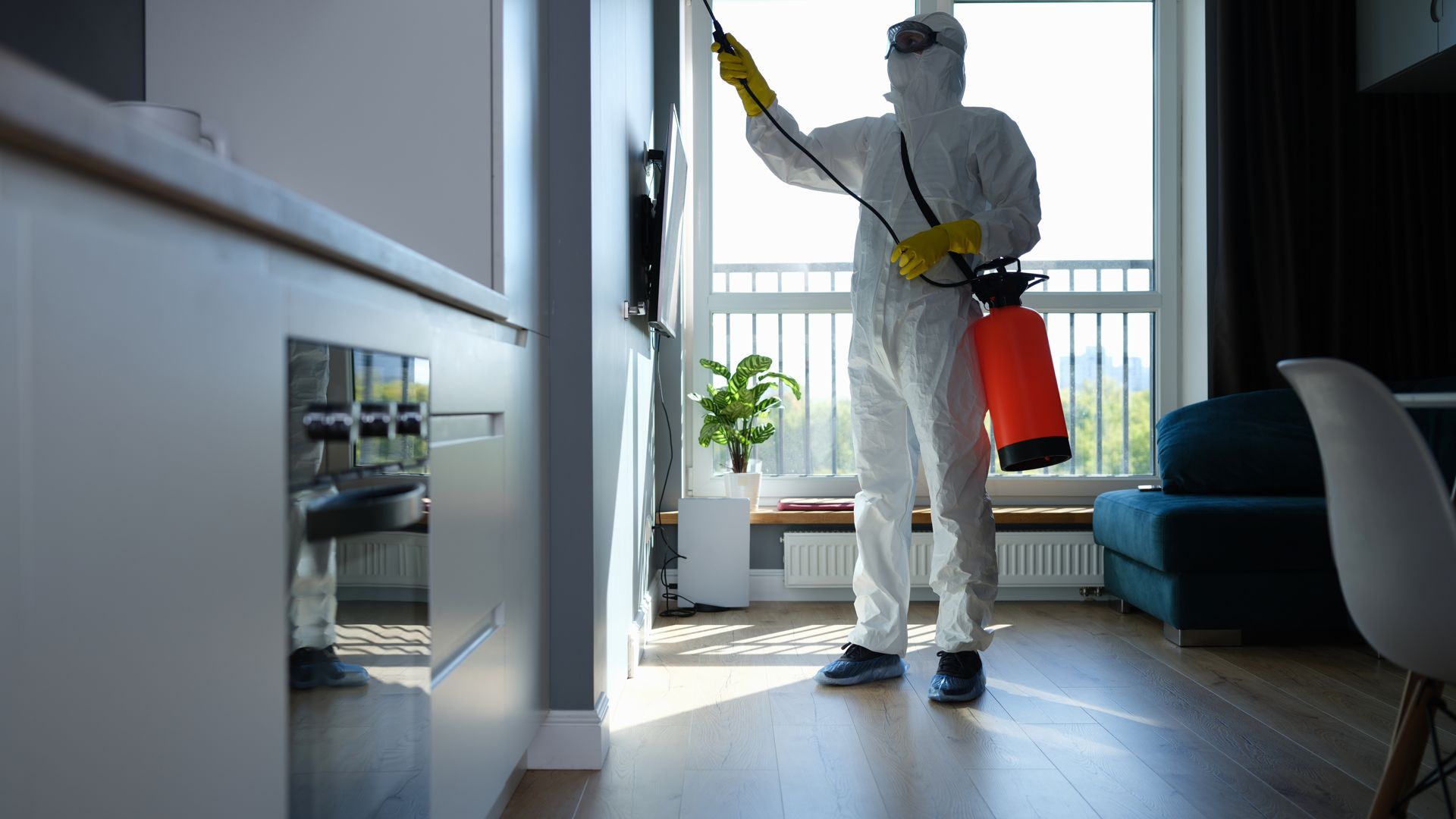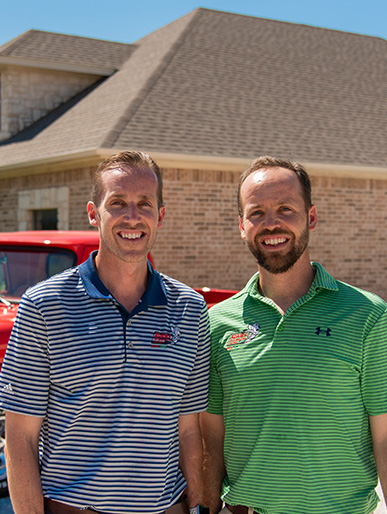
A guide To Complete And Effective Rodent Control In North Texas
There is no better feeling than when you have everything under control. When a project at work is well-managed, there is a sense of accomplishment and peace as you move through the various phases of completion. If you have worked under a supervisor who mapped out the objectives, you enjoy the process because you knew they had everything under control. On the other hand, when things are out-of-control, you have the opposite feelings. When you can't make deadlines, or the project appears to be in a death spiral, there is no sense of peace; instead, anxiety rules your heart.
No one likes it when life seems to be out of control, and the same is true when it comes to rodents. When you believe rodents are in your house, you have anxiety and stress because you don't know how to stop them from infesting your home. The first step to gaining control over a rodent problem is to use the North Texas pest control team from Adams Exterminating Company.
Since 1947 Adams Exterminating Company has removed rodents from homes throughout the North Texas area. We have the experience, knowledge, and tools to take control of your home away from rodents and give it back to you. Education is part of regaining control in a situation, so please keep reading to learn more about rodents so you can wrestle control of your house away from them.
What Animals Are Considered Rodents?
A single pair of constantly growing upper and lower incisor teeth distinguishes rodents from other animals in the Mammalia classification. Hard enamel coats the front side of the teeth, but a soft dentine is on the backside. A sharp razor edge forms where the dentine and the enamel meet; the sharp edges allow rodents to chew through thin metals, plastic, wood, glass, and other materials. Because the incisor teeth grow continually, rodents gnaw on objects nearby to keep them trim. If a rodent were to stop shortening its teeth, the teeth would grow too large, eventually preventing the rodent from eating, and it would starve.
Beavers, gophers, porcupines, and other wildlife rodents are generally not a problem for North Texas homeowners, but the following types of rodents invade homes:
- House mice
- Norway rats
- Roof rats
Although house mice are worldwide, they originated from Central Asia. These rodents have brown to grey fur, a light-colored belly, furry ears, a pointed muzzle, and a tail about the same length as their body. The average house mouse is about 5 to 8 inches in total length.
Norway rats are also called brown or sewer rats. Although we now know that these came to America in the 1700s on ships from Asia, in the 18th century, people believed these rats came from Norway, which is why they are commonly known as Norway rats. Norway rats have brown coats with black hairs interspersed and an underside that is grey to white. Including the tail, Norway rats are about 16 inches long, weigh 1/2 ounce to 1 pound, and do not have fur on their ears or tail. Norway rats tend to occupy areas of the house on the ground level.
Like Norway rats, some people identify roof rats by names like black rats, ship rats, or house rats. These common vertebrate rodents have brown and black intermixed fur, a light underside, a pointed muzzle, and large eyes and ears. They have a 6 to the 8-inch body and a scaly tail of the same length. As their name suggests, roof rats tend to dwell in the upper areas of a house.
If you have seen one of these house rodents in your North Texas home, you need Adams Exterminating Company to come to your rescue. Our highly-trained technicians know how to remove rodents from your house so you can enjoy living without being frightened by rats or mice.
The Damage and Dangers Rodents Can Create in Your Home
Because of their need to gnaw constantly, Texas rodents damage furniture, walls, floors, aluminum siding, and plastic and glass items in your house. Rodents chew through plastic food containers and paper-bound food products to access the contents. Rats often create two to three-inch diameter holes in walls and floors to enable a straight pathway from a food source to their nest.
Although damage to various items is frustrating, a problem of concern is the propensity of rodents in walls to chew through wiring. When one reads of a house fire with "no known cause," chances are that a rodent sparked the fire. Rodents can short-circuit appliances, destroy electronics, disrupt internet and power service in the house, and cause fires.
Rodents not only cause physical damage to homes but also threaten the health and safety of the occupants. Rodents have oily fur that attracts dirt and disease-causing pathogens. As most people know, rodents forage in sewers, rotting garbage, compost piles, animal feces, and other unsanitary locations. Their fur attracts bacteria and viruses as they eat the organic material in these polluted areas. Rats and mice do not have good eyesight, and since they are active at night, they bump against objects and leave grease marks that contaminate surfaces. Pathogens on their fur also transfer to humans when people handle dead rodents without proper protection.
In addition to bacteria and viruses on their coat, rodents infect people through pathogens in their urine, feces, and saliva. Rats produce blunt-ended, rod-shaped droppings the size of an olive pit, and mice deposit pointed, cylindrical feces the size of a grain of rice. A rat delivers about 25,000 droppings annually, and a mouse will leave around 18,000 droppings. Because rats and mice reproduce quickly, it only takes a short time before a couple of rats multiply, and feces is throughout your house.
Rats consume about one ounce of water daily, and it must go somewhere. Therefore, as they travel over utensils, through kitchen cabinets and pantries, they urinate on food products, silverware, and other items infecting them with harmful pathogens. Mice do not produce as much urine as rats but also spray their waste and contaminate surfaces as they move throughout a house. Rats and mice also taint food products and spread disease through their saliva as they chew on items.
Rat-bite fever, leptospirosis, tularemia, trichinosis, salmonellosis, and adult respiratory distress syndrome are some bacterial illnesses that rats and mice spread to humans; rats and mice also transmit viruses like the hantavirus and cowpox virus.
Because rodents spread these bacterial and viral illnesses through contact, feces, and urine, you need effective rodent control from Adams Exterminating Company to protect your family.


Why Choose Adams Exterminating?
-
Trained Entomologists & Service TechniciansOur team brings a deep understanding of insect biology and behavior to create targeted pest control strategies. We're equipped with the latest techniques and technologies to effectively eliminate pests.
-
Customized Plans for Every BudgetRecognizing that each space is different, we customize pest control services for every home or business. Our approach involves targeted solutions, addressing specific needs for your environment.
-
Trusted in the Community Since 1947With a legacy dating back to 1947, our pest control company brings decades of experience with a proven track record to keep your space critter-free.
-
Locally Owned & OperatedAs a locally owned business with offices in both Denton and Lewisville, we are rooted in the community and dedicated to serving our neighbors with personalized service.


